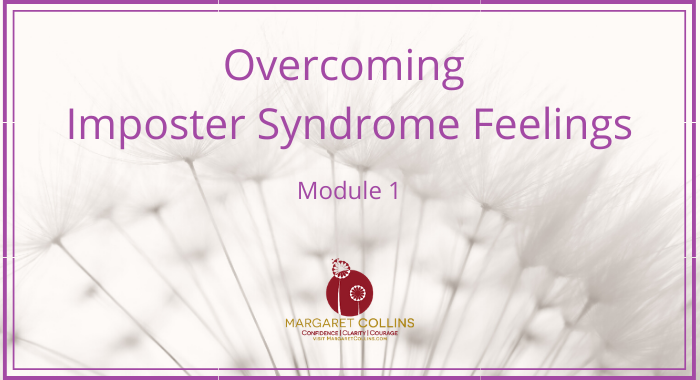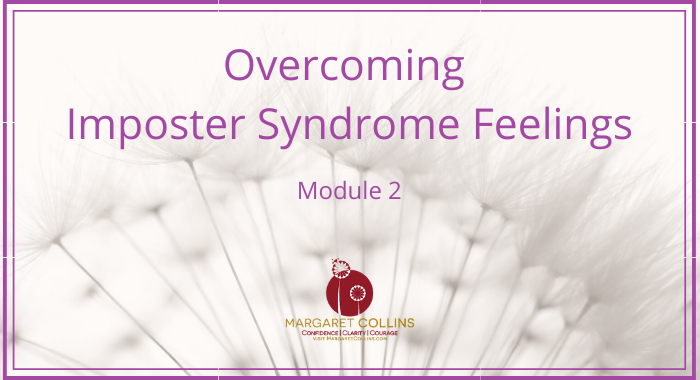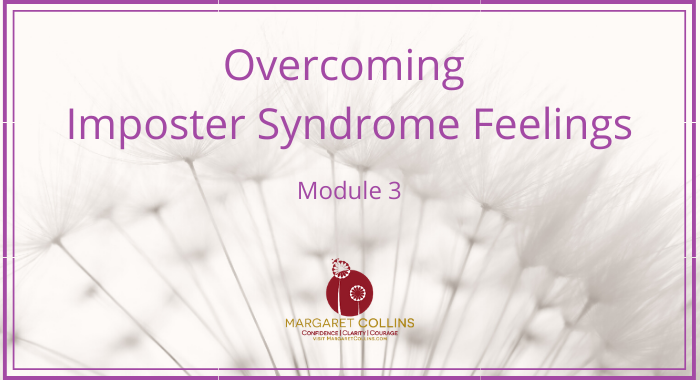OVERCOMING IMPOSTER SYNDROME FEELINGS
This course will help you if are:
- fed up with not feeling good enough,
- frustrated that your are holding yourself back in your business or professional role
- ready to overcome your Imposter Syndrome feelings.
A proven approach
Imposter Syndrome feelings are surprisingly widespread. They are a huge source of frustration.
We are often very familiar with that feeling of holding ourselves back or avoiding the opportunity: "Why am I doing this to myself, again?!". We've done the training, we have the skills and still, we doubt ourselves: "Am I really good enough?". Then we see other people making more progress in their careers while we watch from the side-lines.
I want you to know that feeling like a fraud doesn't mean you're not great at what you do. It just means you experience more stress and anxiety while you do it. I want to help you change that.
This short programme introduces Imposter Syndrome feelings, where they come from, why they matter and what you can do about them. It really is possible to feel as good as other people think you are!
What you get

What is Imposter Syndrome and why does it matter?
Research shows people affected by Imposter Syndrome feelings experience more stress, lower job satisfaction and less career-striving.
This is not a rare or unusual experience.
Don't let these feelings hold you back!

Sources of Imposter Syndrome feelings
Many people with Imposter Syndrome feelings have common experiences in their background.
They also have unhelpful ways of thinking about success that hold them back.
You can learn to think differently!

Solutions for Self-Sabotage
This contains a number of tools that will help you Overcome Impostor Syndrome feelings.
Do the work, re-write your story, recognise your triggers, have a better plan in place, manage your Inner Critic.
You can learn to do this!
Access the short programme now for only £27
I do hope you’ll join me. No matter how long you’ve been affected by Imposter Syndrome feelings there are solutions that you can start using right away. You can bring your best self forward and feel proud of how you show up!
Meet Your Coach
Dr Margaret Collins
Former Academic, Coach, Trainer and recovering Imposter.
For many years I was a very successful senior academic, my colleagues trusted me, respected my work. Me, I was the one who had the doubts and insecurity… did I really belong, was I contributing at the highest level, making a difference and being counted.
I trained as a coach to develop my skills as a manager – only then did I learn how Imposter Syndrome feelings contributed to my strange lack of confidence.
I learned that I was not alone. Doubting myself was a product of unhelpful thought processes (and a little unconscious bias!). Once you see what is happening, you have the resources to change.
Literally, change your thoughts and you can change your life. I changed mine and I can help you see things differently too. You can add new skills and it can feel like everything is different. And like driving a car, this skill set can be learned
“This course gave me some valuable insights into Imposter Syndrome and a deeper understanding of how and why it has been holding me back from living a more authentic life.
It has also given me the tools to challenge and change this. ”
Rose
“I really enjoyed the programme. It really made me think about my imposter and when it comes and what I can do about it.
I need to use the skills and solutions that I have learned from these sessions to further my career and confidence”
Lucy
“I like that it was a short course, it enables you to understand the sources of Imposter Syndrome and how to address it.
Lots of solutions, even to start with - letting go of perfectionism.
It's about implementing the solutions that are easy for me and to keep coming back to it. ”
Mary
Access the short programme now for only £27
I do hope you’ll join me. No matter how long you’ve been affected by Imposter Syndrome feelings there are solutions that you can start using right away. You can bring your best self forward and feel proud of how you show up!

